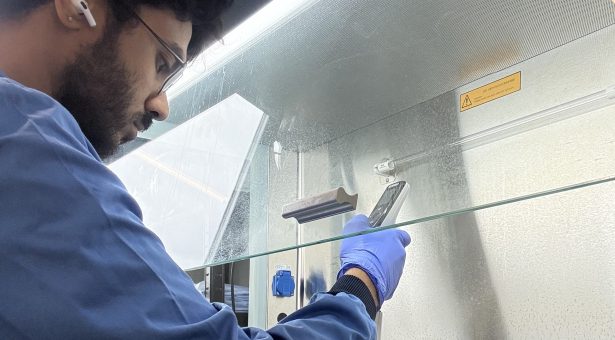Advait’s placement with fast-paced start-up Bactobio

Advait Aithal, a third year PhD UEA Chemistry student completed his PIPS with Bactobio Ltd, a biotechnology company that uses synthetic biology, next-generation sequencing and machine learning to culture the 99% of microbes which have previously been unculturable.
His placement project was to work on high-throughput elicitor-based culture of the Bactobio stock collection to detect novel antimicrobials and by doing this, Advait wanted:
- To gain experience of working in a start-up, particularly a pre-series A start-up as he felt he would be most productive in this type of work culture.
- To broaden his technical skills by learning new high-throughput screening and analytical methods more commonly used in industry rather than academia plus understand how large-scale data from such screens are organised, analysed and translated into actionable results.
- And to understand how scientific research is embedded within a company’s strategic and commercial goals.
During his placement, Advait conducted microbiological experiments and assays in a high-throughput format, analysed experimental data using statistical and visualisation tools and authored and adapted scripts where needed to ensure accurate outputs. He planned and optimised experimental conditions to evaluate biological responses and collaborated with colleagues, contributing ideas and learning how projects are managed in a start-up setting.
Advait acknowledged that through this project he achieved both technical and personal growth during his 12-weeks with Bactobio. He learned to work effectively with an automated laboratory system and improved his ability to analyse large datasets, troubleshoot computational workflows and present clear summaries of results.
He particularly valued the collaborative environment which was intellectually stimulating and gave him exposure to different ways of thinking about problems and approaches to experimental design. He improved his ability to explain his results clearly in meetings, ask the right questions and contribute to group discussions. Working closely with the Bactobio team gave him insight into how effective communication underpins teamwork in an industrial setting. He is deeply grateful for this placement experience.
Joshua Burns, Scientist II and Advait’s supervisor at Bactobio commented, “Advait did a great job at researching and analysing data for the project which was really appreciated by all the team.”
Advait’s advice to others who have yet to organise their PIPS is, “do it in the summer of your third year as by then, you will have made significant progress in your PhD and can step away from your PhD without worrying too much. This makes your placement a refreshing break and allows you to focus on your new environment. Plus, go on placement with an open mind and a willingness to step outside of your comfort zone. The methods, workflows and culture may be very different from academia but embracing these differences is what makes the experience so valuable. Finally make the most of interactions with these new colleagues as their insights can be just as important as the new technical skills learnt.”
